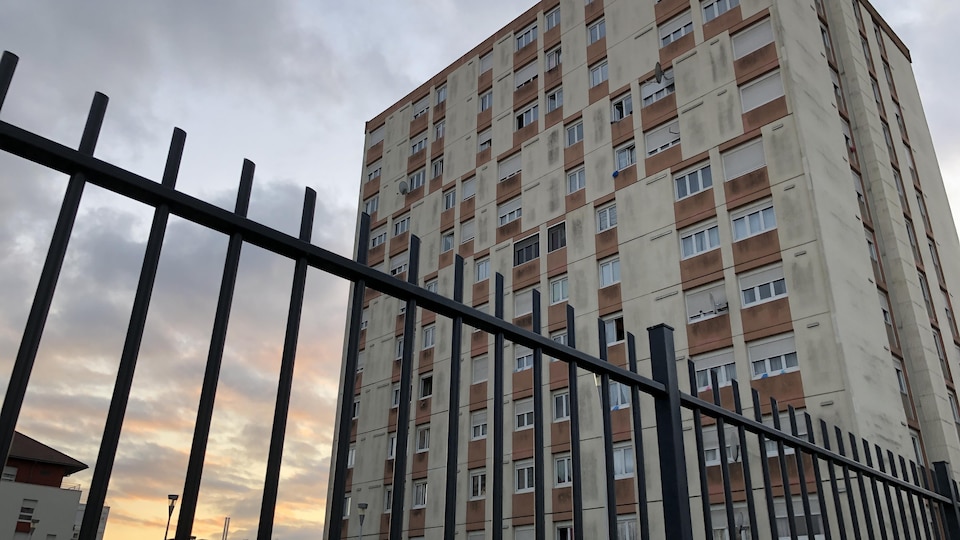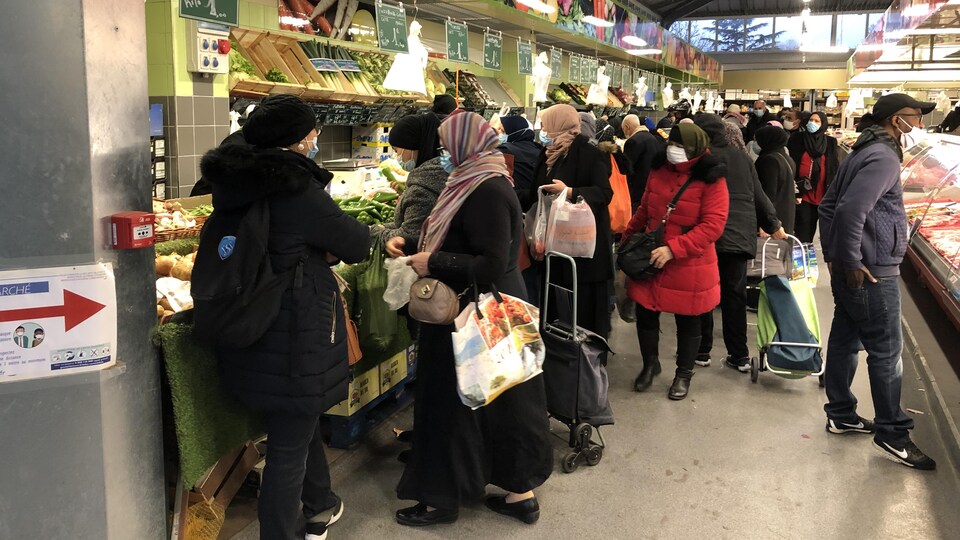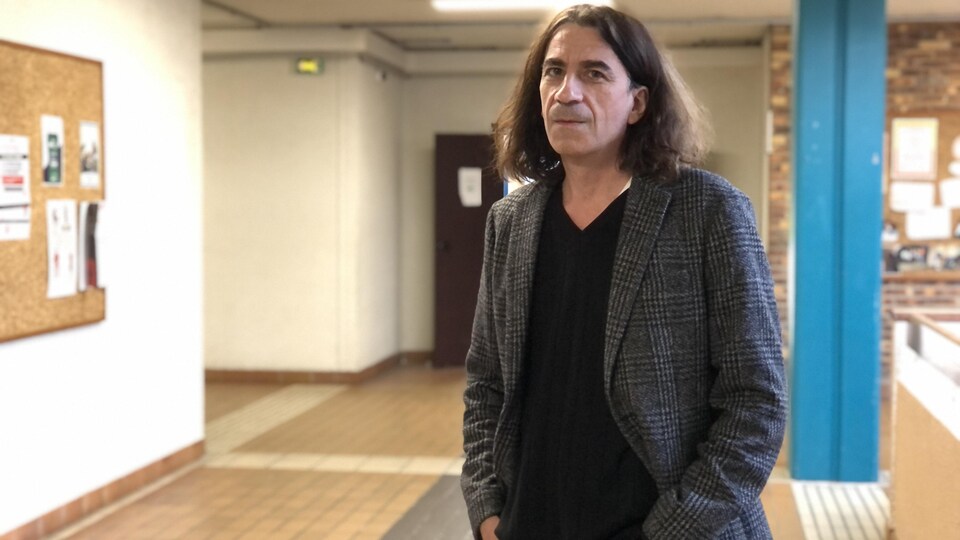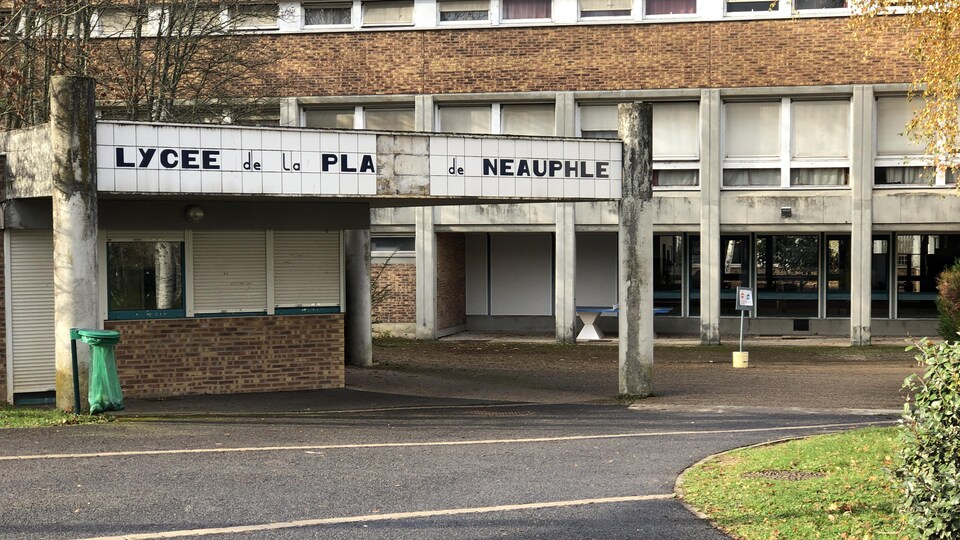This article was first posted by Radio-Canada by journalist Yanik Dumont Baron in French, you can read the original here. The woman in the article does not use her real identity for fear of reprisal. This shows the distinct separatist nature of some Muslim communities in France.
The French government will unveil this week the content of a bill against community withdrawal. It particularly targets radical Islamists, whose hold over several neighborhoods worries many French people. Visit to Trappes, one of the so-called “lost” territories of the French Republic.
“You can take the first name of your choice. I don’t know, Fatima.” The woman bursts out laughing, but you can feel the nervousness behind her verve.
This Muslim has lived in Trappes for almost 20 years. She agreed to show me around the city, but on condition that she was not identified. And not to get out of the vehicle.
It requires mistrust, to be very careful
, she explains.
Mother of a family, Fatima fears that her fellow citizens will see her with a non-Muslim and that they will draw the wrong conclusions.
“I don’t trust them. These people, they will translate it as “apostasy”, as if I had renounced Islam. And for them, someone who denies Islam is someone dangerous.”
Fatima
When she talks about these people
, she thinks of Muslims with very rigorous practices, Islamists whose ideas would have a lot of influence in the streets of Trappes.
People like those whose denunciations led to the beheading of teacher Samuel Paty in mid-October.
Yes, Fatima fears for her safety. But she wants to show this Trappes in which she no longer finds herself. A poor city, predominantly Muslim, whose values seem to diverge from those of the rest of France.
Community housing in Trappes, where the population is strongly Muslim.
The lost territories
of the Republic?
Trappes is located about thirty kilometers west of Paris, not far from Versailles. From the capital, it takes less than an hour by train to reach this small town.
Trappes was the epicenter of the first French riots linked to religion, in July 2013. It is also the city in Europe from which the largest number of militants of the Islamic State armed group left, towards Syria.
French politicians speak of separatism
or community withdrawal
to designate places as Trappes. Territories where radical Islamists are engaged in a real war of values.
In early October, French President Emmanuel Macron denounced(New window)the Islamist separatism
that is developing there. He then described it as a conscious, theorized, politico-religious project, which materializes through repeated deviations from the values of the Republic, which often results in the constitution of a counter-society
.
Emmanuel Macron sees it as an ideology
that promotes indoctrination
and the negation of our principles, equality between women and men, human dignity
.
Fatima speaks of a deadly ideology
which manipulates
Muslims by repeating that they live in a France which is racist, liberticidal
and that it is preferable to stay between us
, with our mosques and our schools.
Religious values are above the values of the Republic. We spit on France
, she sums up a bit ironically, but we stay in France
.
How many are thus withdrawing into their community? Impossible to know. According to a note from the French intelligence services, consulted by the Sunday Journal(New window), at least 150 territories (districts or sections of towns) would be held
by radical Islamists.
These days, the Minister of the Interior has asked for reinforced controls in 76 mosques out of the 2,600 or so identified in France. That is about 3% of all Muslim places of worship.
These 3% worry many French people, who recall that it only takes a few hardened Islamists to lead to the beheading of a teacher or of the faithful in a church.
Customers in a food store in Trappes
Do not mix with the French
There, look at the women
, says Fatima, slowing down her car. Have you seen the veiled women?
It’s public market day in Trappes, the city center is bustling with activity.
It is not uncommon to see a veiled woman in the streets of French cities. But more rare to come across so many in such a short time.
This afternoon, most clients wear a tight veil around their face. A veiled mother walks by with a little girl who only seems to be 6 or 7 years old. The girl is also veiled.
From an early age, she knew she should wear the veil and stay home. It is sad.Fatima
Fatima describes peer pressure. According to them, if some Muslim women wear the veil out of conviction, others do so so as not to be bothered by men with fundamentalist ideas.
And then there are also those convinced of living in a country of disbelievers, where it is better to stay at home rather than mix with them
, the French non-Muslims.
Trappes was of course not always like this. Fatima remembers a different city 20 years ago when few Muslims went to mosques.
And then, she explains, these extremists started to have their hands on thought. They began to see Islam only as the really extremist side: women must wear the veil, must not work, this world, it is ephemeral, we will have paradise.
The veil is a very visible symbol and is, of course, only one indicator among others of the degree of religious rigor of the one who wears it.
Fatima enumerates a whole series of small refusals
of small gestures
which can also be revealing of a community withdrawal, of a rigidity in the practices.
There are these terraces where women are no longer welcome, these unisex hairdressers, these halal-only butchers, these teenage girls who no longer go to swimming pools.
Didier Lemaire teaches philosophy at Plaine de Neauphle high school in Trappes.
Many signals in schools
These signals are also often visible in public schools, such as the father who refuses to shake a teacher’s hand, these teenage girls who are always excused during swimming lessons, these pupils who do not want to visit a church during a lesson. of history.
These small gestures, Didier Lemaire noticed them during his 20 years of teaching at the Plaine de Neauphle high school in Trappes.
In class, boys mingle less with girls than before. Teenage girls of North African origin do not wear makeup, are withdrawn
, while her former students demanded equality, dressed in French
.
After the Charlie Hebdo and Bataclan attacks , Didier Lemaire discovered that he had a few students who approved of them
.
I understood it the way they didn’t look me in the eye anymore
, he said.
Quite a shock for a man who claims to have values well to the left, who teaches critical thinking and free judgment. A shock that prompted him to better observe the daily life of Muslims in Trappes.
Five years later, these observations force him to make a clear statement:
There are no longer any French customs here. We eat differently, we live differently, we have a different rhythm of life.Didier Lemaire
The teacher considers that his students have another life outside the secular school. He talks about these teenage girls who put on their veils when they leave school, these boys who denigrate France.
Plaine de Neauphle secondary school in Trappes.
Laws to fight against these separatisms
The murder of Samuel Paty offered another opportunity to gauge the gulf that separates some Muslims from the rest of the French.
In France, many students reacted with indifference. Some teachers have even been threatened with death.
In early November, tributes to the beheaded teacher were also disrupted. The Ministry of Education has identified nearly 800 incidents
, such as provocations or refusals to participate in the minute of silence.
Some students (or their parents) have gone so far as to justify terrorism. About ten cases could lead to legal proceedings.
It is in the hope of curbing what it judges to be community abuses that the French government intends to strengthen the laws to better protect republican principles
, such as secularism and equality.
This includes provisions aimed at punishing online hatred, anti-French propaganda, or even mechanisms allowing tighter control of funding and activities linked to mosques.
Insufficient and rather electoral, in the eyes of the teacher Didier Lemaire, who sees radical Islam as an ideology at open war against France and its institutions.
We are referred to as enemies. Denial is precisely thinking that it is just ideas or conceptions.Didier Lemaire, teacher
In this regard, he joins the mayor of Nice who, like many on the right, demands that France be exempt from the laws of peace
after the attack which cost the lives of three Catholics in a church at the end of October.
What is implied is that France should be much more severe both towards those it suspects of planning attacks and towards those who foment hatred on its own territory.
On her own level, Fatima is also thinking of concrete actions: she plans to leave Trappes, a city where she no longer feels welcome.
“The difference is in my ideas, in my way of seeing things, in my way of saying Islam as I have experienced it. I feel more comfortable… with non-Muslims.”
Fatima









